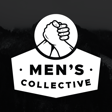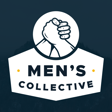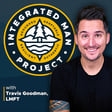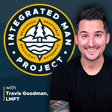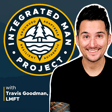Introduction and Tragedy in Texas
00:00:00
Speaker
In the final analysis, the question of why bad things happen to good people translates itself into some very different questions, no longer asking why something has happened, but asking how we will respond, what we intend to do now that it has happened.
00:00:27
Speaker
An excerpt from When Bad Things Happen to Good People by Harold Custer. Today is a difficult day following a significant tragedy in a shooting in Texas just yesterday with the loss of so many children in just a quick moment.
00:00:52
Speaker
Today's episode was going to be a quick follow-up and discussion about grief and loss given last week's episode when Kelly shared about the tragic loss and fourth miscarriage that he and his wife had to endure and go through life and our world.
Kushner's Personal Tragedy and Beliefs
00:01:22
Speaker
There's tragedy, there's loss, there's unfairness, cruelty, disease and crime, earthquakes and accidents, imperfections. And Harold Kushner in his book, When Bad Things Happen to Good People, see he was a Jewish rabbi and it's a
00:01:46
Speaker
authentic story and his journey of dealing with the loss of his son from really rare disease and him asking that question, why do bad things happen to good people? I read the book a few times now and if you haven't read it, it's a, I think a helpful read and it gives and provides language to understand death and suffering.
00:02:14
Speaker
And he starts off in the book really questioning his God as a Jew, questioning his God and having this belief that if you're good, good things come and if you're bad, bad things come, kind of that idea of karma. However, when his son was diagnosed and was tragically lost, it flipped his world upside down.
Personal Grief and Repeated Tragedies
00:02:35
Speaker
And it's a story of his process, his grief, his hurt, his loneliness and depression, his sadness, his anger, his process of going through the waves and emotions of grief. And for some of us today, the shooting that took place yesterday really hits home.
00:03:05
Speaker
And for many different reasons, some of us may have lost a child for some of us have children. Some of us may not even have children, but might be tired of seeing such tragic and evil things occurring in our world. And when I find myself having a difficult time, I turn to often
00:03:32
Speaker
some great thinkers or other people that have gone through suffering before me to see if I can glean words of wisdom and maybe impossibly a path through it all.
Searching for Reasons Behind Suffering
00:03:45
Speaker
And Harold Kushner is one of those men, one of those men who challenges me to think differently, to examine differently.
00:04:00
Speaker
And for a lot of us, again, following what happened just yesterday, is one of too many tragic losses of children that we've seen in recent years. And we're faced with what to do now. But before we even do that, we often ask the why, why haven't things changed?
00:04:23
Speaker
Why, why, why? Which is a normal human response to ask why we are inquisitive beings and we like to understand why. We like to get to the root problem and see if we could somehow come to the core to understand. But often, and far too often,
00:04:43
Speaker
we may not ever fully be able to get to the core of the why. Sometimes we can, sometimes we could point and identify the cause, but more often than not, we're left with kind of a unstable why, a gray why, not so clear, a muddy why.
00:05:07
Speaker
and Harold Custer and that excerpt I read earlier is really all that we can do is identify that something has happened. Whether it was a miscarriage of a child, someone in your family getting cancer, a tsunami destroying a seaside and people in the village, whatever it might be,
00:05:36
Speaker
asking why often I think just leads us more down the turbulence tornado of suffering and often that why can keep us spinning and spinning and spinning leaving us with no real footing
Choosing Responses to Suffering
00:06:00
Speaker
And so that question that Kushner switches to of how will we respond? What do we intend to do now? Following it, whatever it might be in your life. We all have different things that happen. And I found in my personal experience to ask that question of how am I going to choose to respond today? What do I intend to do now about
00:06:31
Speaker
the loss about the tragedy, about whatever that about might be for you. That then gives us some sense of footing on the earth to take a step. Now, Kushner was very clear
00:06:52
Speaker
It, that doesn't take away the loss of the pain that doesn't just fix things. It's not like a light switch. Once we ask this question, things are magically better that we're all good to go, so to speak, but rather it, it enables us to begin to walk in and through the suffering, the pain,
00:07:18
Speaker
it gives the capacity to begin to move forward, even if it's just a small shuffle, maybe a small step. And so my encouragement to you,
00:07:44
Speaker
today, this week, this month, is if you have something in your life, if something has happened, if a tragedy has happened in your life, if the recent shooting in your life has shook you to your core, begin to ask that question.
00:08:10
Speaker
What now? What can I do now? How do I choose to respond today? And ask yourself that question each and every day, because each and every day it might be something slightly different.
Suffering and Character Transformation
00:08:35
Speaker
Something else Kushner said,
00:08:40
Speaker
He said that we may not ever understand why we suffer or be able to control the forces that cause our suffering, but we can have a lot to say about what suffering does to us and what sort of people we become because of it.
00:08:58
Speaker
Pain makes some people bitter and envious. It makes others sensitive and compassionate. It is the result, not the case or cause, of pain that makes some experiences of pain meaningful and others empty and destructive. So I encourage you to choose to not let pain and suffering
00:09:27
Speaker
take you down that path of bitterness and envious. But to use, to use the suffering for something good, for something better.
A Tale of Grief and Helping Others
00:09:50
Speaker
See, there is this old Chinese tale about a woman whose only son had died.
00:09:57
Speaker
In her grief, she went to the holy man and said, what prayers, what magical incantations do you have to bring my son back to life? Instead of sending her away or reasoning with her, he said to her, fetch me a mustard seed from a home that has never known sorrow. We will use it to drive the sorrow out of your life.
00:10:18
Speaker
So the woman set off at once in search of the magical mustard seed. She came first to a splendid mansion, knocked at the door and said, I'm looking for a home that has never known sorrow. Is this such a place? It is very important to me. They told her you've certainly come to the wrong place and began to describe all the tragic things that had recently befallen them. The woman said to herself, who is better able to help these poor unfortunate people than I who have had misfortune of my own?
00:10:50
Speaker
She stayed to comfort them, then went on in her search for a home that had never known sorrow. But wherever she turned, hovels and in palaces, she found one tale after another of sadness and misfortune.
00:11:05
Speaker
Ultimately, she began and became so involved in ministering to other people's grief that she forgot about her quest for the magical mustard seed, never realizing that it had in fact, derived and drove the sorrow out of her life. So I wish you all blessings today to you, your families, your children,
00:11:36
Speaker
I'll see you next week. Thanks for joining and listening today. Please leave a comment and review the show. Dads are tough, but not tough enough to do this fatherhood thing alone.

